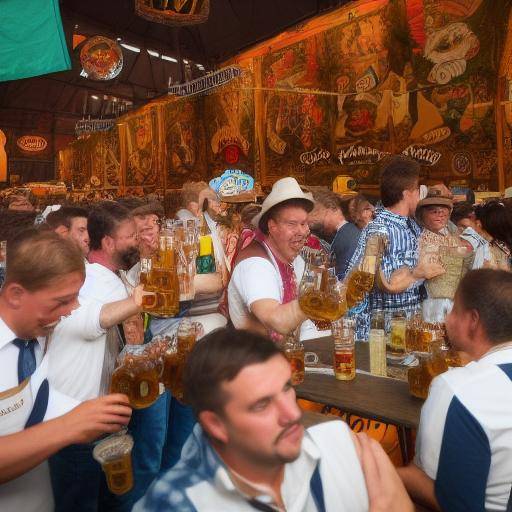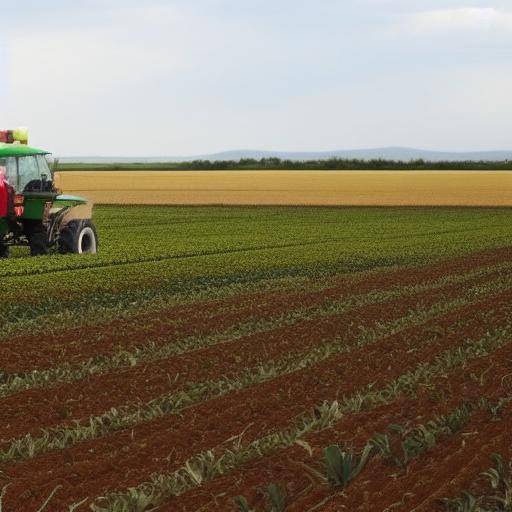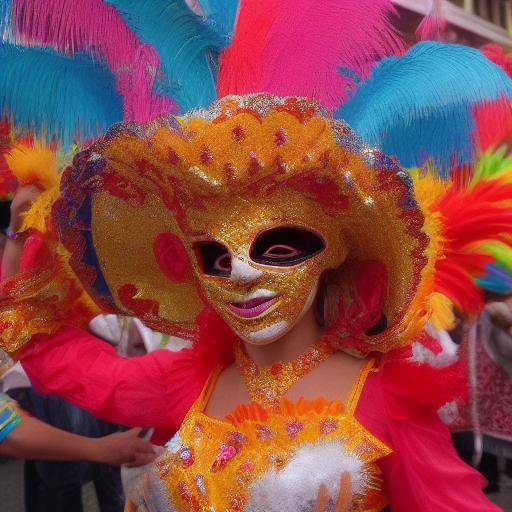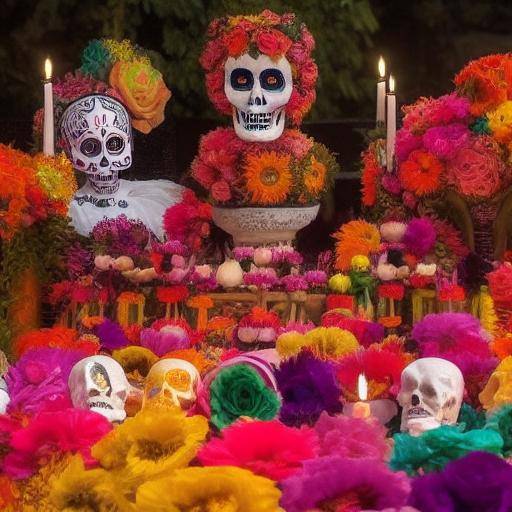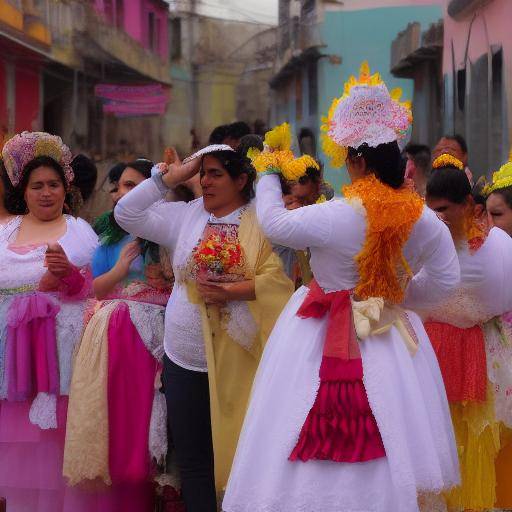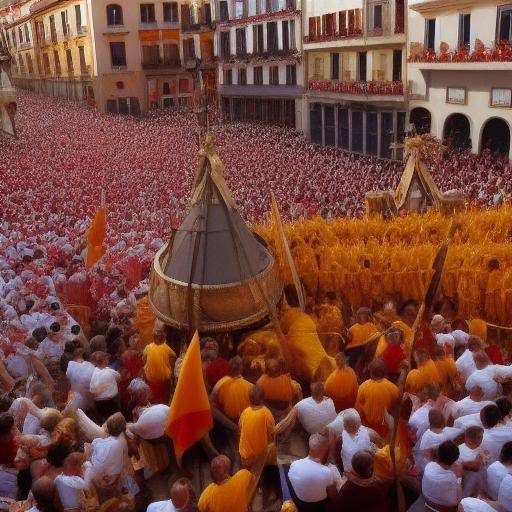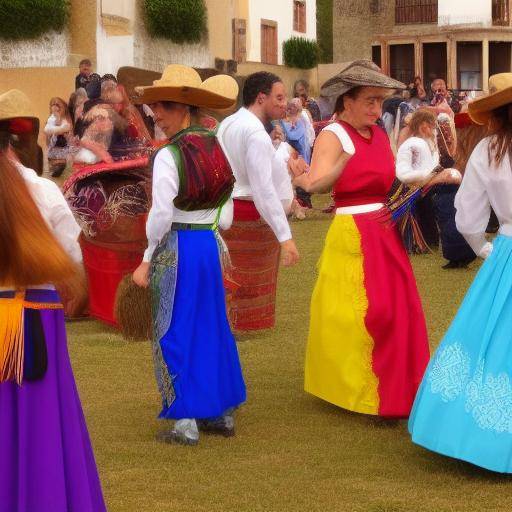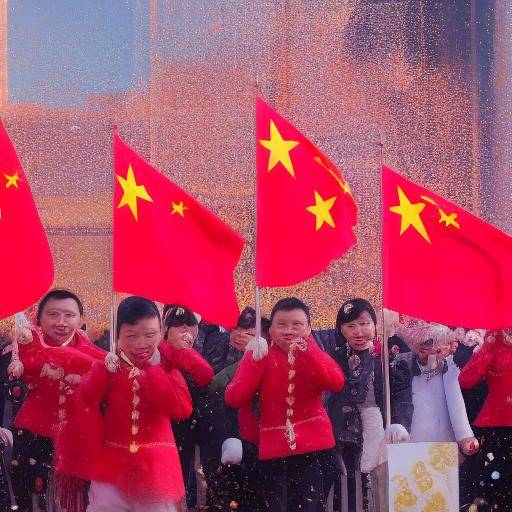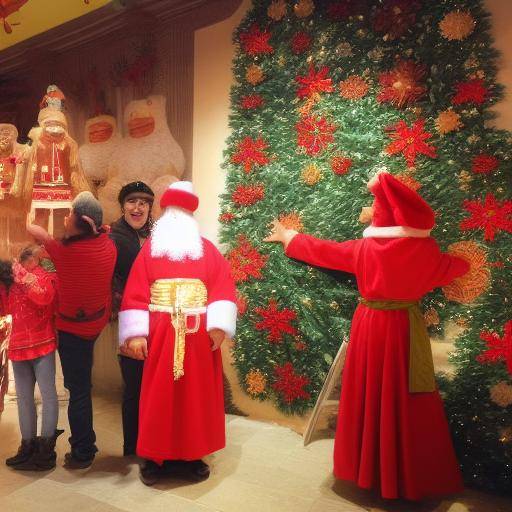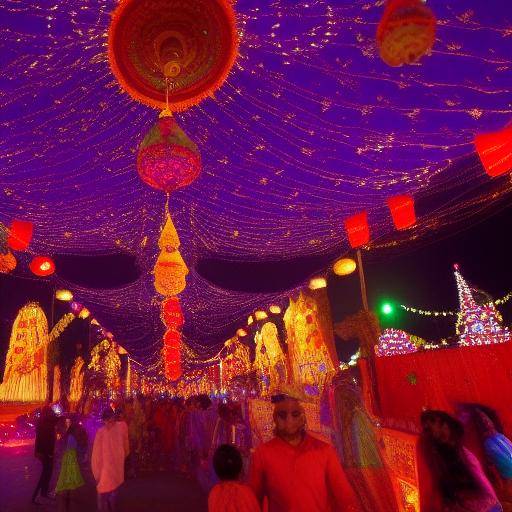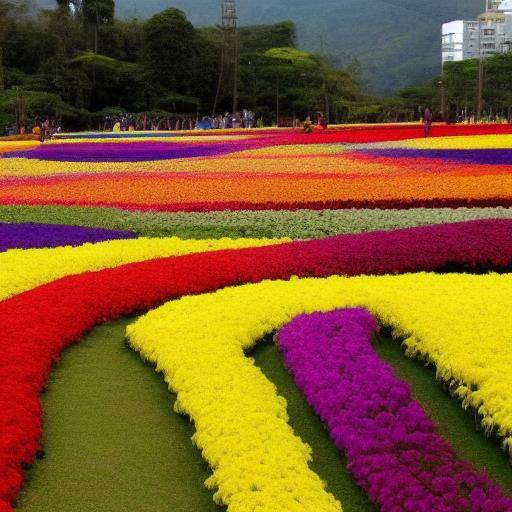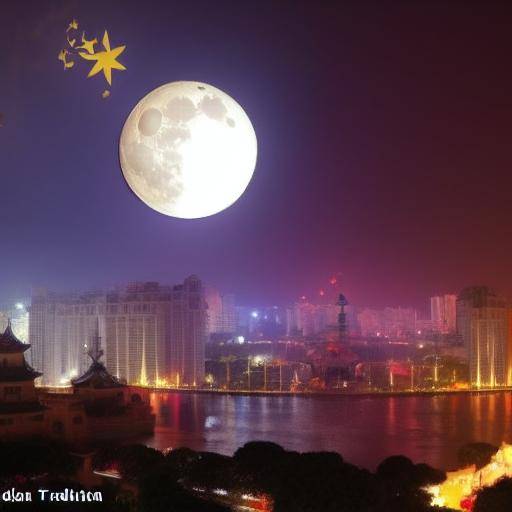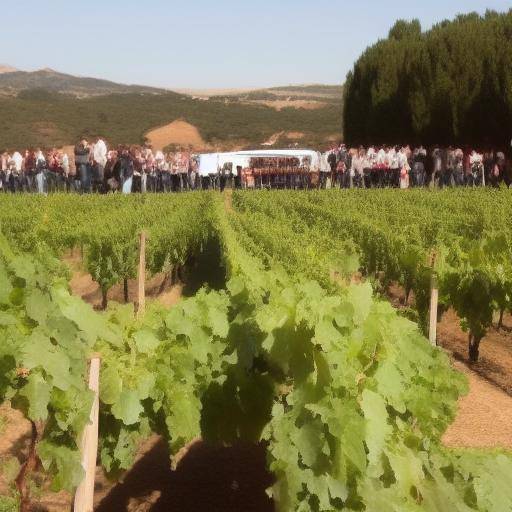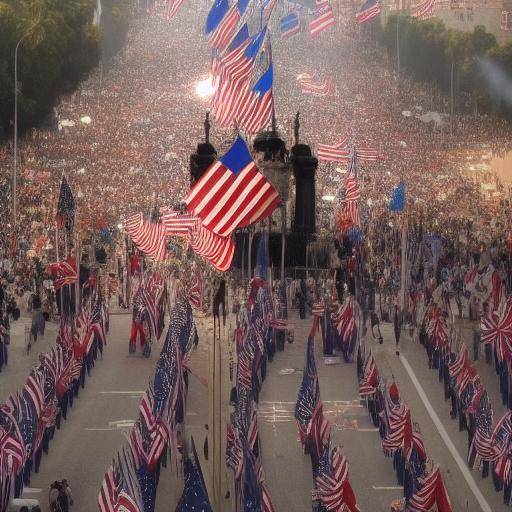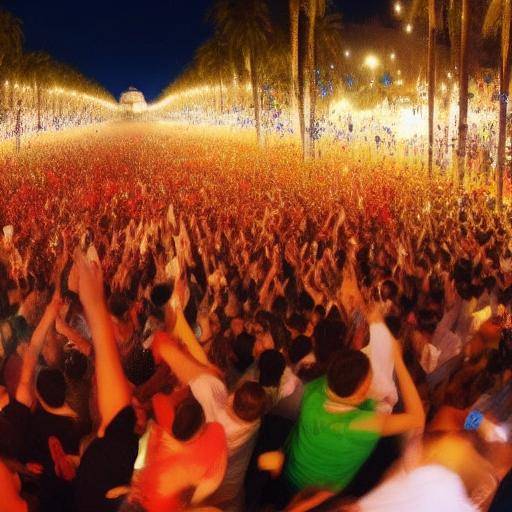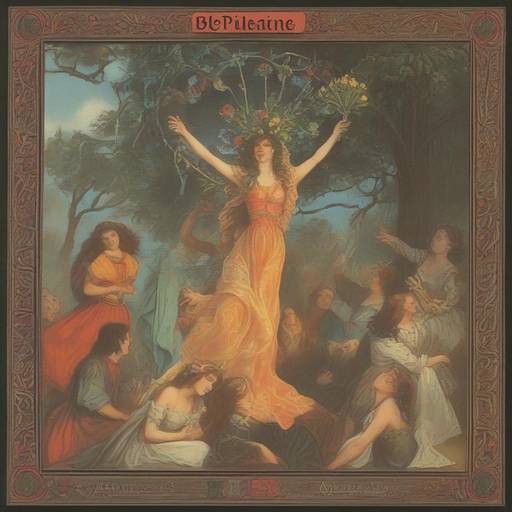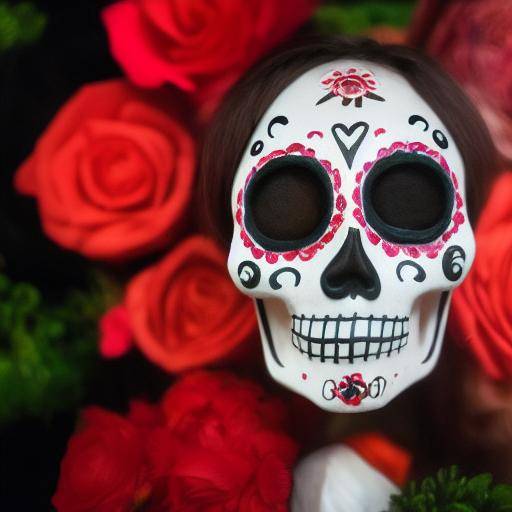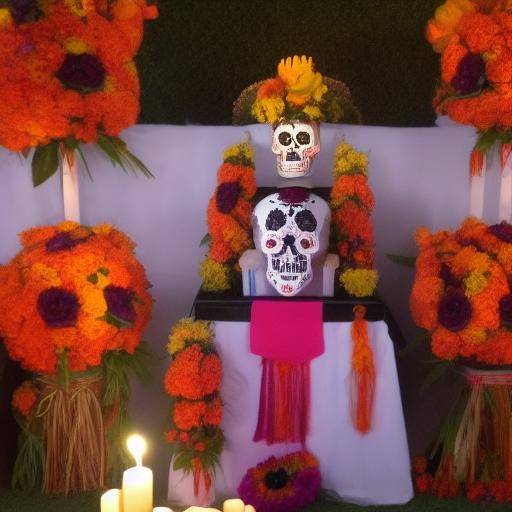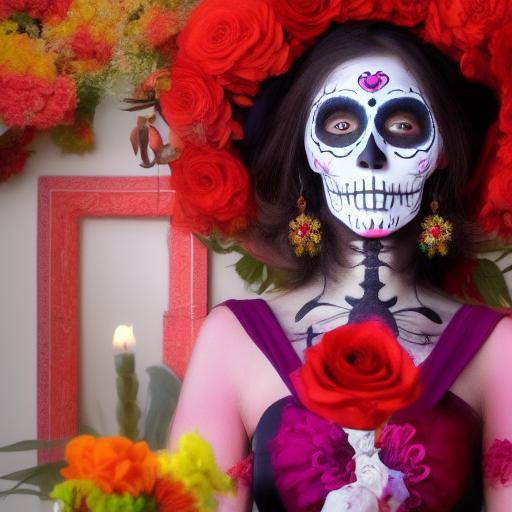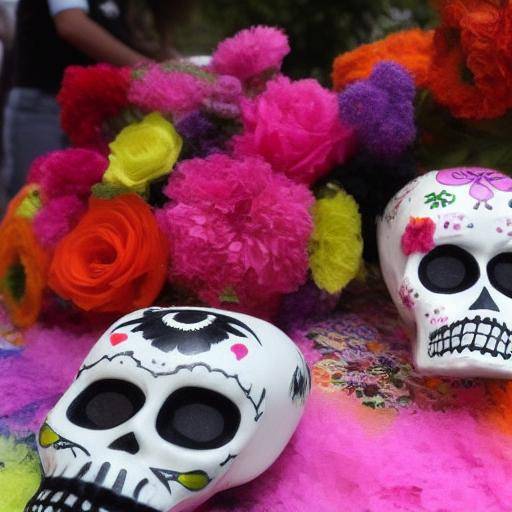
The Day of the Dead in Mexico is a colorful and exciting celebration that honors the deceased. In this holiday, families gather to remember and celebrate the lives of their loved ones who have passed away. Often misinterpreted as the Mexican version of Halloween, this holiday is, in fact, a tribute to death, characterized by rituals, traditions and festivities that reflect Mexico's rich cultural heritage. In this article, we will explore the profound tradition of Day of the Deadyour relationship with the traditional parties and its root in Mexico.
Introduction
In this section, you will immerse yourself in the celebration of Day of the Dead, exploring its meaning, historical roots, cultural aspects and its place in Mexican society. You will discover why this holiday is much more than just a commemoration of death and how it has evolved over time. In addition, you will explore the influence of Mexico and his traditional parties at the celebration of this unique event.
History and Background of the Day of the Dead
The Day of the Dead has its roots in ancient pre-Columbian traditions, such as Aztec rituals dedicated to the goddess of death, Mictecacíhuatl. With the arrival of Catholicism in Mexico during the Spanish conquest, this festival merged with the Christian celebration of the Day of All Saints and the Day of the Faithful, creating a unique cultural synergy. Over the centuries, the Day of the Dead has evolved, retaining elements of indigenous traditions and adapting to European influences.
Origins and Meaning of the Day of the Dead
The Feast of the Day of the Dead is held mainly on 1 and 2 November, coinciding with the Catholic holidays already mentioned. During these days, families meet to remember and honor their deceased loved ones. The altars dedicated to the deceased, known as "ofrendas", are filled with photographs, candles, flowers, food and objects that used to belong to loved ones. The belief is that, during this time, the spirits of the deceased return to the earthly world to enjoy the offerings arranged for them. The festival is full of color, music, dance and food, celebrating the life and memory of loved ones.
Diversity of Celebrations in Mexico
Mexico is a diverse country, and each region has its own variations in Day of the Dead. From the iconic festival in the state of Oaxaca, known for its elaborate offerings and parades, to the most intimate celebrations in rural towns, the festival adopts unique nuances and rituals in each community. Regional differences highlight the rich cultural diversity of Mexico and the profound connection of the nation with its ancestral traditions.
Traditional Mexican Festivals and their Relationship with the Day of the Dead
The traditional parties are an integral part of the identity of Mexico. From religious celebrations to civic festivals, Mexico has a rich tradition of parties that reflect its diverse cultural heritage. The Day of the Dead it stands out as one of the most emblematic festivities, merging indigenous elements with Catholic influences and becoming a symbol of the vibrant Mexican culture.
Day of the Dead: Beyond a Celebration
The Day of the Dead transcends the commemoration of the deceased, becoming an expression of the identity and the Mexican community. This festival is a celebration full of symbolism, which promotes family union and the transmission of traditions from generation to generation. It also highlights the rich artistic creativity through the elaborate offerings, the colorful skulls of sugar, theatrical performances and the iconic coves (skeletal patterns) that adorn the streets and public spaces.
Benefits and Challenges of Dead Day
The celebration of the Day of the Dead It brings many benefits to Mexican society, including the preservation of cultural identity, the strengthening of family ties and the promotion of cultural tourism. However, it also faces challenges, such as excessive marketing and loss of authenticity in some manifestations. Despite these challenges, the festivity remains a vibrant and meaningful expression of Mexican culture.
Current trends and prospects Futures
At present, Day of the Dead continues to evolve, adapting to social and cultural changes. Within Mexico, there is a renewed interest in preserving and revitalizing ancestral traditions, promoting greater participation in the festival. At the international level, Day of the Dead has gained relevance, attracting the attention of tourists and fans of Mexican culture around the world. This growing popularity suggests a promising future for the festivity, expanding its reach and cultural impact.
Conclusion
The Day of the Dead in Mexico is a unique holiday that reflects the rich history and profound spirituality of this country. Through its rituals, traditions and celebrations, this holiday reminds us of the importance of honoring our ancestors and valuing life in all its forms. Beyond being a celebration of death, the Day of the Dead is truly a feast of life and memory.
Frequently asked questions
What is the origin of the Day of the Dead in Mexico?
The Feast of the Day of the Dead has its roots in ancient pre-Columbian traditions, such as Aztec rituals dedicated to the goddess of death, Mictecacíhuatl. With the arrival of Catholicism in Mexico during the Spanish conquest, this festival merged with the Christian celebration of the Day of All Saints and the Day of the Faithful, creating a unique cultural synergy.
How is Day of the Dead celebrated in Mexico?
The celebration of the Day of the Dead varies throughout Mexico, but usually includes the construction of altars dedicated to the deceased, adorned with photographs, candles, flowers, food and objects that used to belong to loved ones. The colorful festivals and parades are also common, together with the creation of sugar skulls and theatrical performances.
What is the cultural importance of Day of the Dead in Mexico?
The Day of the Dead It is a festival of great cultural importance in Mexico, as it represents the connection of people with their ancestors, promotes the preservation of traditions and promotes family unity. In addition, it is an expression of artistic creativity and a celebration of life through the memory of the deceased.
How has Day of the Dead evolved over time?
Over the centuries, the Day of the Dead It has preserved elements of indigenous traditions and adapted to European influences, creating a unique holiday that continues to evolve to reflect social and cultural changes in Mexico and around the world.
What is the international impact of Day of the Dead?
The Day of the Dead has gained popularity internationally, attracting the attention of people from different cultures and nationalities due to their rich iconography, their commemorative rituals and their connection to spirituality. This celebration has transcended borders and has gained global relevance, generating a growing interest in Mexican culture and traditions around the world.
What is the importance of traditional parties in Mexican culture?
The traditional parties they are an integral part of Mexico's identity, a living manifestation of the country's rich cultural heritage. These festivities represent an opportunity to celebrate, preserve and transmit ancestral traditions, testifying to the diversity and vitality of Mexican culture.
How do you compare the Day of the Dead and other traditional Mexican parties?
Yeah. Day of the Dead is one of the most emblematic festivities in Mexico, the country hosts a wide variety of traditional parties which reflect the cultural diversity of their regions. Each holiday has its own unique characteristics, but they share the same wealth of symbolism, history and root in Mexican society.
Conclusion
The Day of the Dead It is a deeply rooted festival in Mexican culture, which transcends death to celebrate the life and memory of loved ones who have left. This celebration, together with the various traditional parties from Mexico, it reflects the country's rich history and vibrant cultural diversity. By understanding and appreciating these festivities, we can immerse ourselves in the very essence of Mexico, honoring its ancestral traditions and its resilient spirit that endures over time.
Throughout this article we have explored in depth the meaning, history, evolution, traditions and cultural roots of the Day of the Dead and traditional parties from Mexico. These unique celebrations invite us to reflect on the importance of life, memory and traditions, conveying an invaluable lesson of respect, gratitude and love for those who have preceded us.
And here ends our journey through Day of the Dead and traditional parties from Mexico. That this exploration has allowed you to understand and appreciate the rich cultural heritage that these holidays represent for the Mexican people. Until the next celebration!

